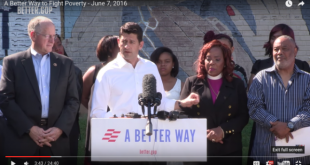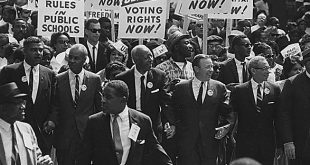 The Heritage Foundation’s Robert Rector, an expert on domestic policy, wrote an op-ed for the organization’s Daily Signal on the state of welfare reform.
The Heritage Foundation’s Robert Rector, an expert on domestic policy, wrote an op-ed for the organization’s Daily Signal on the state of welfare reform.
How has government-dependency reform fared since President Bill Clinton signed the bill into law 20 years ago?
“The highly popular reform cut welfare caseloads by over 50 percent, sharply boosted the employment of the least-skilled single mothers, and pushed the poverty rates of black children and single-parent families to historic lows,” Rector wrote. “But the left always hated welfare reform. It now claims that reform has thrown 3.5 million children into ‘extreme poverty,’ the kind seen in the developing world, living in destitution on less than $2 per day.”
Rector debunks two welfare reform critics, whose book, $2.00 a Day: Living on Almost Nothing in America, fueled claims that reform had caused extreme poverty.
“Edin and Shaefer’s bizarre charges are based on the government’s Survey of Income and Program Participation. However, examination of the survey data reveals that the families Edin and Shaefer claim are living in ‘extreme poverty’ don’t actually appear to be particularly poor, let alone living in ‘extreme destitution.'”
The authors conceded that including some important information would undermine their conclusion.
“The authors admit that if food stamps and the earned income tax credit are counted, the number of kids in ‘extreme poverty’ drops to 1.2 million. But that number is still misleading because the survey used by Edin and Shaefer undercounts receipt by more than 20 million welfare benefits distributed to recipients each month.
“In a nutshell, Edin and Shaefer have used a survey that omits more than 20 million welfare benefits each month to conclude that 1.2 million children live in families that go without welfare in that month. They are simply measuring large data gaps in a flawed survey, not actual holes in the safety net.”
According to Rector, unmarried households saw the biggest decrease in poverty — the group that was the focus of welfare reform.
 Black Community News News and Commentary for Christians
Black Community News News and Commentary for Christians



